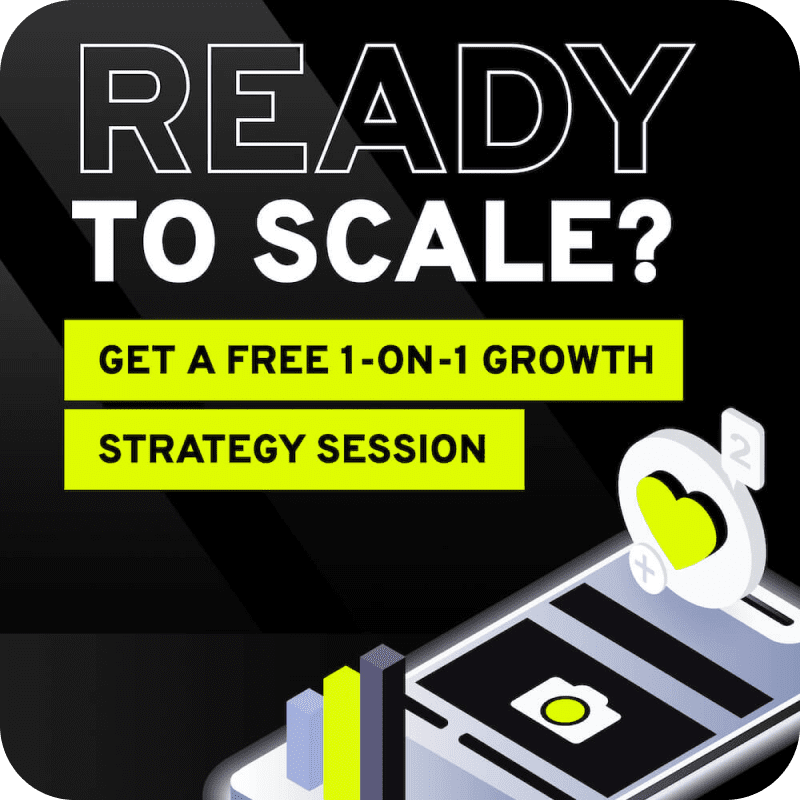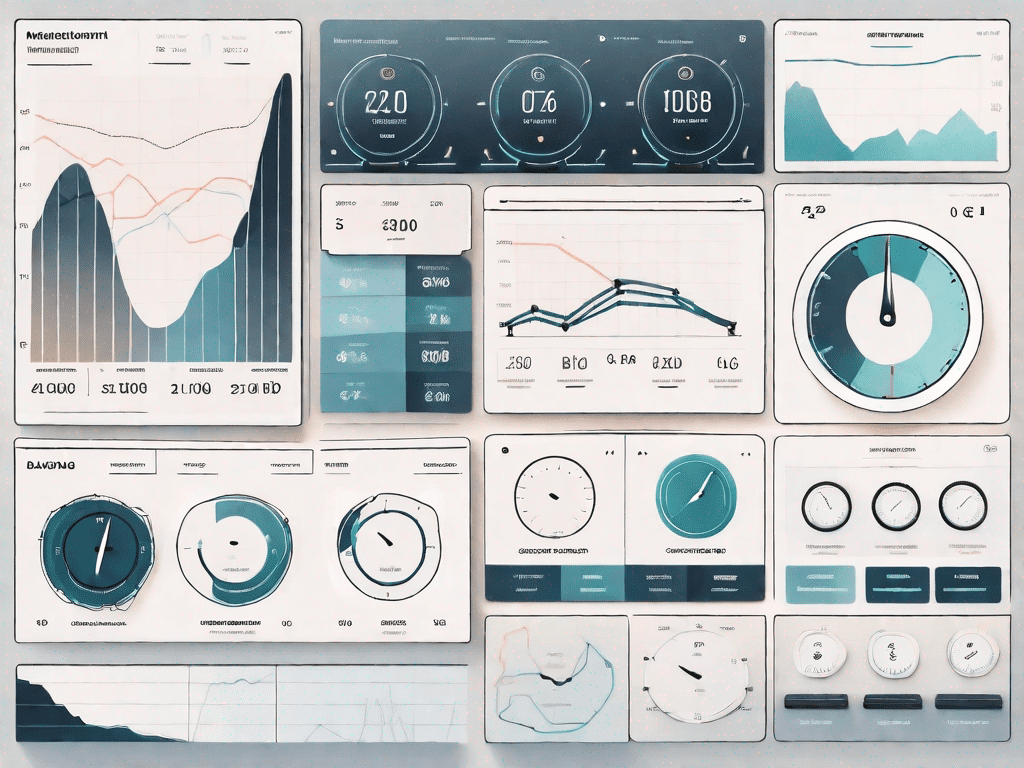In the rapidly evolving landscape of digital advertising, pay-per-click (PPC) bidding strategies have become essential for businesses aiming to maximize their online presence. As technology continues to advance, one innovation that has revolutionized PPC bidding is artificial intelligence (AI). By harnessing the power of AI, businesses can gain a competitive edge in optimizing their PPC campaigns. This article explores the basics of AI and PPC bidding, the impact of AI on PPC bidding, implementing AI in your bidding strategy, overcoming challenges, and the future of AI in PPC bidding.
Understanding the Basics of AI and PPC Bidding
What is AI?
Artificial intelligence refers to the ability of computer systems to perform tasks that typically require human intelligence. AI algorithms analyze vast amounts of data, detect patterns, and make informed decisions. In PPC bidding, AI algorithms are leveraged to optimize the bidding process and achieve better campaign performance.
AI has revolutionized the digital marketing landscape by enabling advertisers to make data-driven decisions and automate complex tasks. With AI, businesses can leverage advanced algorithms to analyze historical campaign data, identify trends, and make predictions about future performance. This allows advertisers to optimize their PPC bidding strategies and achieve better results.
One of the key advantages of AI in PPC bidding is its ability to adapt and learn from real-time data. AI algorithms can continuously monitor campaign performance, adjust bids based on user behavior, and optimize ad placements to maximize conversions. This level of automation and optimization is not possible with traditional manual bidding methods.
The Role of PPC Bidding in Digital Marketing
PPC bidding is a crucial aspect of digital marketing, where advertisers bid for ad placement in search engine results pages (SERPs) or on other websites. Bids are based on keywords, ad relevance, and other factors. Effective PPC bidding ensures that businesses can target their desired audience while managing their advertising budget efficiently.
When it comes to PPC bidding, there are various strategies that advertisers can employ. Manual bidding involves setting bids manually for each keyword or ad group, allowing advertisers to have full control over their bidding decisions. On the other hand, automated bidding utilizes AI algorithms to automatically adjust bids based on predefined goals and parameters.
Automated bidding offers several advantages over manual bidding. Firstly, it saves advertisers time and effort by automating the bidding process. Advertisers can set specific goals, such as maximizing conversions or achieving a target return on ad spend (ROAS), and let the AI algorithms optimize bids accordingly. This frees up time for advertisers to focus on other important aspects of their digital marketing campaigns.
Furthermore, automated bidding can leverage AI’s ability to analyze vast amounts of data and make real-time bidding decisions. AI algorithms can consider various factors, such as user demographics, device type, and time of day, to determine the optimal bid for each ad impression. This level of granular optimization ensures that advertisers can reach their target audience at the right time and maximize their campaign performance.
In conclusion, AI has transformed the PPC bidding landscape by enabling advertisers to leverage advanced algorithms and automation. With AI-powered bidding, businesses can achieve better campaign performance, optimize their advertising budget, and reach their desired audience effectively. As technology continues to advance, the role of AI in PPC bidding is only expected to grow, revolutionizing the way digital marketing campaigns are executed.
The Intersection of AI and PPC Bidding
How AI is Changing PPC Bidding
AI has transformed PPC bidding by automating the process and providing more accurate insights. AI algorithms analyze vast amounts of data, including historical performance, user behavior, and market trends, to make real-time bidding decisions. This helps businesses optimize their ad spend, achieve higher click-through rates, and improve conversion rates.
One of the ways AI is changing PPC bidding is through its ability to analyze user behavior. By tracking and analyzing user interactions with ads, AI algorithms can identify patterns and preferences, allowing businesses to tailor their bidding strategies accordingly. For example, if AI detects that users are more likely to click on ads with specific keywords or images, it can adjust the bidding strategy to prioritize those ads, resulting in higher click-through rates.
Furthermore, AI algorithms can also analyze market trends and competitor data to inform bidding decisions. By continuously monitoring the market and competitor activities, AI can identify opportunities for businesses to gain a competitive advantage. For instance, if AI detects that a competitor has reduced their bidding on certain keywords, it can recommend increasing bids on those keywords to capture more market share.
The Benefits of AI in PPC Bidding
The benefits of leveraging AI in PPC bidding are numerous. AI algorithms can quickly process large amounts of data and adapt bidding strategies in real-time, resulting in increased efficiency and campaign effectiveness. With AI-powered bidding, businesses can make data-driven decisions faster, allowing them to stay ahead of the competition.
Another benefit of AI in PPC bidding is its ability to reduce the dependence on manual monitoring and adjustment. Traditionally, businesses had to manually monitor and adjust their bidding strategies based on performance data. This process was time-consuming and prone to human error. However, with AI, businesses can automate the bidding process, freeing up valuable time and resources. This allows marketers to focus on more strategic aspects of their marketing efforts, such as crafting compelling ad copy and identifying new target audiences.
Moreover, AI-powered bidding can also help businesses achieve higher conversion rates. By analyzing user behavior and historical performance data, AI algorithms can identify the most effective bidding strategies for driving conversions. For example, if AI detects that users are more likely to convert after multiple interactions with an ad, it can adjust the bidding strategy to prioritize those ads, resulting in improved conversion rates.
In conclusion, the intersection of AI and PPC bidding has revolutionized the way businesses approach online advertising. AI algorithms have the ability to analyze vast amounts of data, make real-time bidding decisions, and adapt strategies based on user behavior and market trends. The benefits of leveraging AI in PPC bidding are evident, from increased efficiency and campaign effectiveness to reduced manual monitoring and improved conversion rates. As AI continues to advance, we can expect even more exciting developments in the field of PPC bidding.
Implementing AI in Your PPC Bidding Strategy
Artificial Intelligence (AI) has revolutionized the way businesses approach Pay-Per-Click (PPC) advertising. By incorporating AI into your PPC bidding strategy, you can optimize your campaigns, improve targeting, and maximize your return on investment (ROI). But how exactly do you implement AI into your PPC bidding strategy? Let’s explore the steps you need to follow.
Steps to Incorporate AI into PPC Bidding
To successfully incorporate AI into your PPC bidding strategy, it’s important to follow these steps:
- Evaluate your campaign goals and identify areas where AI can add value. Before diving into AI-powered bidding, take a step back and evaluate your campaign goals. Identify areas where AI can make a significant impact, such as bid optimization, audience targeting, or ad copy testing. By understanding your objectives, you can determine which aspects of your PPC strategy could benefit the most from AI.
- Choose a reliable AI-powered bidding tool that aligns with your business needs. With the growing popularity of AI in PPC, there are numerous AI-powered bidding tools available in the market. It’s crucial to choose a tool that aligns with your business needs and objectives. Look for a tool that offers advanced algorithms, machine learning capabilities, and real-time data analysis to optimize your bidding strategy effectively.
- Integrate the AI tool with your PPC platform, ensuring seamless data flow. Once you’ve selected the right AI tool, it’s time to integrate it with your PPC platform. This integration ensures a seamless flow of data between the AI tool and your advertising platform. By connecting the two, you enable the AI tool to access relevant campaign data, analyze performance metrics, and make data-driven bidding decisions.
- Monitor the AI-driven bidding performance closely and make necessary adjustments along the way. Implementing AI into your PPC bidding strategy is not a set-it-and-forget-it process. It’s crucial to monitor the AI-driven bidding performance closely and make necessary adjustments along the way. Keep a close eye on key performance indicators (KPIs) such as click-through rates (CTR), conversion rates, and cost per acquisition (CPA). By continuously analyzing the data and making adjustments, you can ensure that your AI-powered bidding strategy remains effective and aligned with your campaign goals.
Choosing the Right AI Tools for PPC Bidding
When it comes to selecting AI tools for PPC bidding, there are several factors to consider:
- Capabilities: Look for AI tools that offer a wide range of capabilities, such as bid optimization, audience segmentation, and predictive analytics. The more robust the tool’s capabilities, the more effectively it can enhance your PPC bidding strategy.
- Ease of integration: Choose an AI tool that seamlessly integrates with your existing advertising platforms. The integration process should be smooth and hassle-free, allowing you to quickly start leveraging the power of AI in your PPC campaigns.
- Support system: Consider the level of support provided by the AI tool’s vendor. Ensure that they offer reliable customer support and are readily available to address any queries or issues that may arise during the implementation process.
- Compatibility: Verify whether the AI tool is compatible with your existing advertising platforms. It’s essential to choose a tool that can seamlessly integrate with your preferred PPC platforms, such as Google Ads or Facebook Ads.
By carefully evaluating these factors and selecting the right AI tools for your PPC bidding strategy, you can unlock the full potential of AI and take your campaigns to new heights.
Overcoming Challenges in AI-Driven PPC Bidding
Common Obstacles in AI Implementation
Implementing AI in PPC bidding may have its challenges. One common obstacle is the need for sufficient historical campaign data for AI algorithms to learn from. Additionally, understanding and interpreting AI-generated insights can be complex, requiring expertise or dedicated staff to optimize AI-driven bidding strategies.
Strategies to Overcome AI-Related Challenges
To overcome AI-related challenges, consider the following strategies:
- Ensure that your campaign data is accurately tracked and integrated.
- Invest in proper training or hire professionals with expertise in AI-driven bidding.
- Regularly evaluate the performance of AI algorithms and fine-tune their parameters.
- Collaborate with AI tool providers to understand how to interpret their insights effectively.
The Future of AI in PPC Bidding
Predicted Trends in AI and PPC Bidding
In the future, AI will continue to play a pivotal role in PPC bidding. Predicted trends include:
- Increased use of machine learning algorithms to enhance bidding accuracy.
- Integration of AI in ad creative optimization and personalized targeting.
- Advancements in natural language processing to improve understanding user intent.
- Expanded adoption of AI across different digital advertising channels.
Preparing for the Future of AI-Driven PPC Bidding
To prepare for the future of AI-driven PPC bidding, businesses should stay updated on the latest advancements in AI technology, regularly assess their PPC bidding strategies, and explore partnerships with AI tool providers. It’s crucial to adapt to changing consumer behaviors and leverage AI capabilities to drive better campaign performance and achieve business goals.
In conclusion, leveraging AI in PPC bidding strategies can lead to smarter and more efficient campaigns. By understanding the basics of AI and PPC bidding, implementing AI tools effectively, and overcoming potential challenges, businesses can harness the power of AI to optimize bidding decisions and achieve improved campaign performance. As AI continues to evolve, staying informed about the future trends and preparing for its impact will be key in ensuring long-term success in the competitive landscape of digital advertising.


